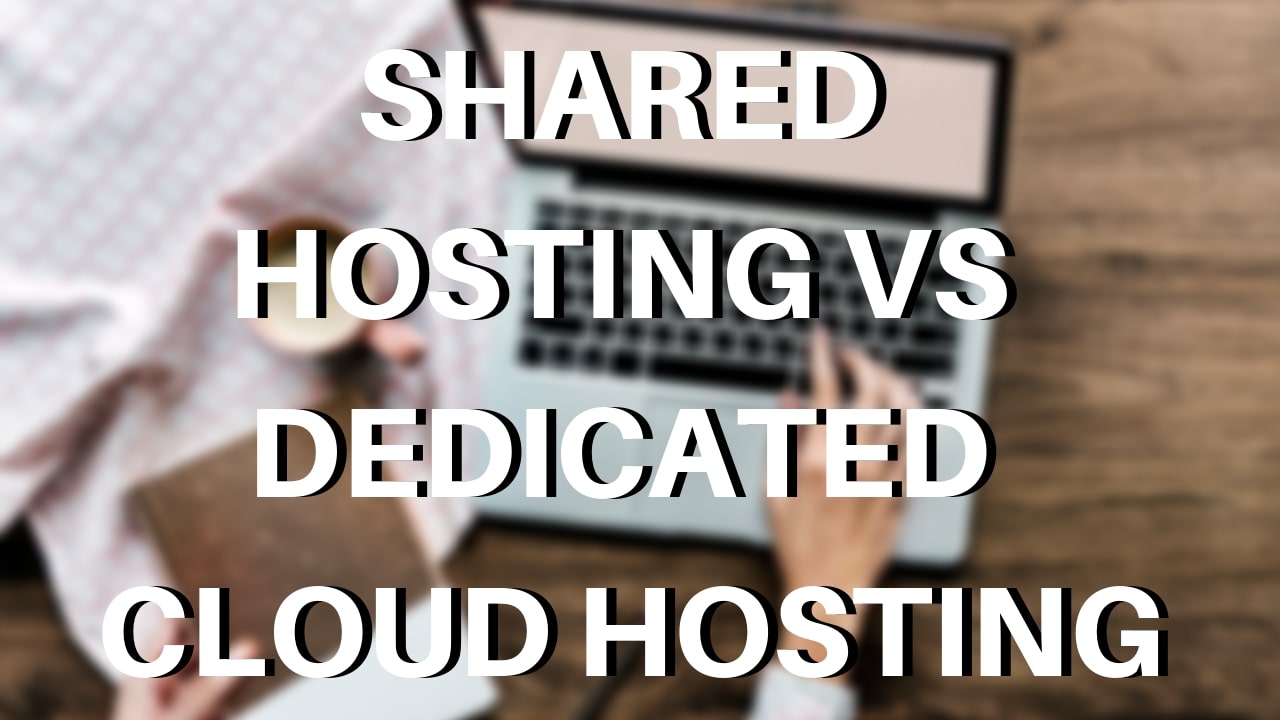Shared hosting VS dedicated cloud hosting, which one is right for your business?
Keep on reading because that’s exactly what I’ll be going over in this post.
What is shared hosting?

Shared hosting is just as it sounds, you’re sharing a server with other websites.
NOTE: A server is simply a computer where websites are hosted on.
With shared hosting, you get a cheaper price because other people are also helping to pay for the cost of a server.
It’s kinda like sharing a house with others. You’re not paying the full rent, just your percentage.
There are pros and cons of shared hosting.
Pros:
- Cheap
- Maintains reasonable speeds for small websites
- Great option for people who are starting a blog
Cons:
- Not as secure as VPS Hosting
- Can become slow if your website becomes too big and gets too much traffic
- You don’t get your own allocated resources, this means your servers have a higher chance of slowing down if others are taking all the resources
As you can see, there are pros and cons.
If you’re a blogger, I would recommend shared hosting. It’s very affordable and gives you reasonable speeds. Read the Advantages and Disadvantages of Shared Web Hosting
If you’re an actual business, you may want something with better security measures.
What is dedicated cloud hosting?
To answer this, we must ask, “what is cloud hosting?” before we get into the “dedicated part”. I’ll explain that in just a moment.
Cloud hosting is where your website is being hosted on multiple servers. With a normal hosting plan, you’re simply put on a single server but with cloud hosting you’re put on multiple servers.
You see, with a server, you have a limited amount of resources. There’s only so much disk space, ram, and overall computing power a server can have.
HOWEVER…
With cloud hosting, you are put on multiple servers. So you get to utilise the power of multiple servers, giving you an unlimited amount of resources at your disposal.
Here’s where the “dedicated” cloud hosting part comes into play…
…With dedicated cloud hosting, you’re not sharing servers with other people. You’re on several of your own servers.
There are of course many pros and cons to this.
Pros:
- Super fast loading speeds
- Have an unlimited amount of computing power
- A lot more security, if one server goes down, your website is still safe because other servers are running.
- You don’t need to share your server which adds another layer of security.
Cons:
- Dedicated hosting can be very expensive
If you’re serious about fast loading speeds with incredible security and you have the budget, you don’t want to pass up dedicated cloud hosting.
I remember when comparing a shared hosting site and a cloud hosting site side by side. The difference between the two was night and day.
Conclusion
If you have the budget and you’re a fairly big business, I would recommend going with dedicated cloud hosting.
If you’re starting up your own little websites, it’s better for you to go with shared hosting. You don’t need all that power.
You can get your hosting from SeekaHost.
Related posts:
- Different Marketing Channels for your Business
- 5 Steps to Bootstrapping Your First E-Commerce Business
- 5 Important Things For Business People to Plan Before Retiring
- Starting a blog on WordPress: Why I decided to start a blog on WP (This blog)
- How to start a Digital Marketing Agency
Author Profile
- I'm an SEO expert born and raised in England. I help businesses rank their pages in Google, bringing them new leads, customers and ultimately, I help grow businesses with ClickDo Ltd, one of the most highly rated marketing agencies in London. I'm notoriously known as the SEO who squishes the competition when paired with a business owner who's serious about his SEO because I build some of the most high authority backlinks a person can get their hands on. I also like adding some heat in the Google results pages by having a robust Google Adwords campaign running.






